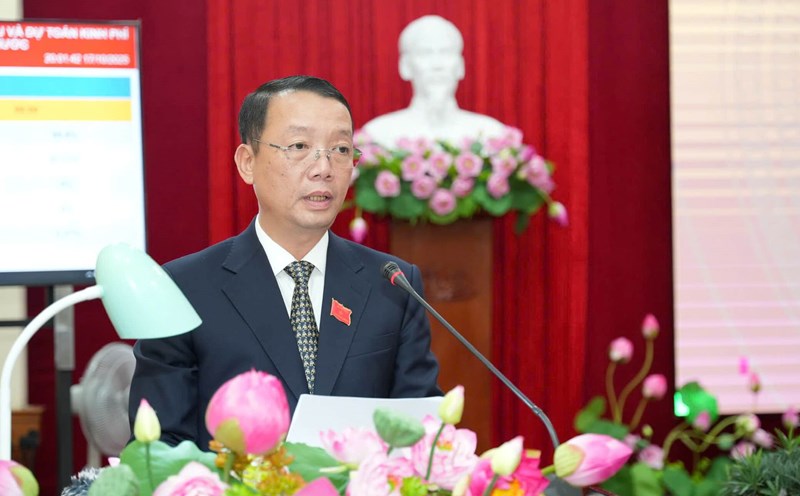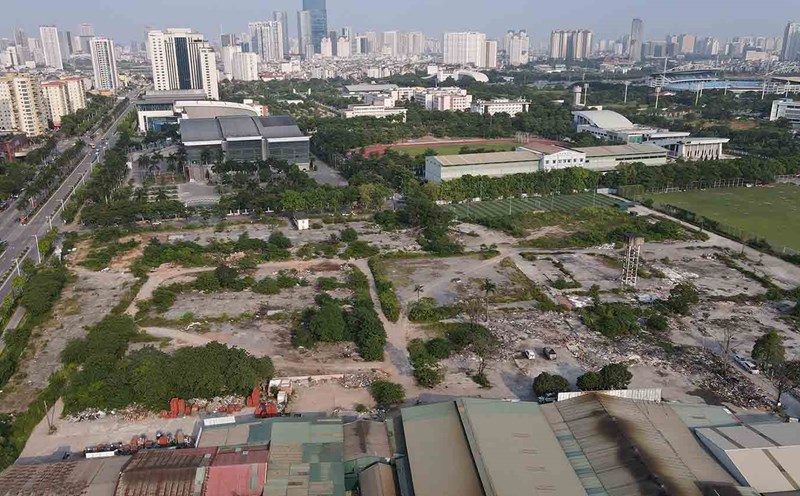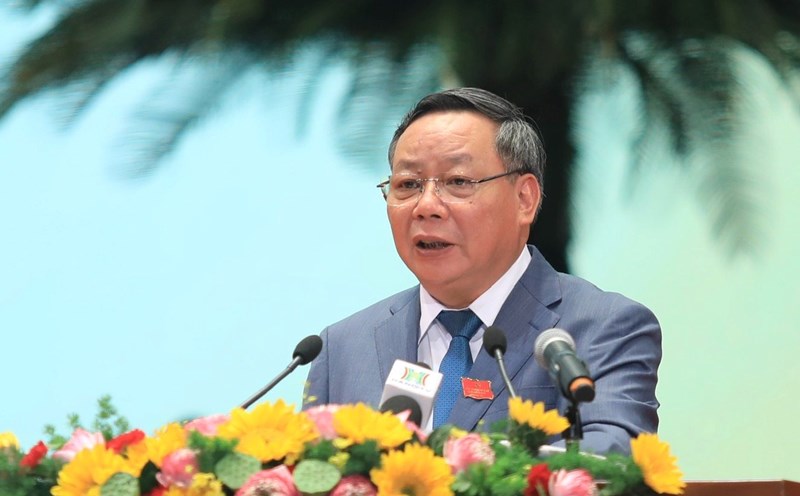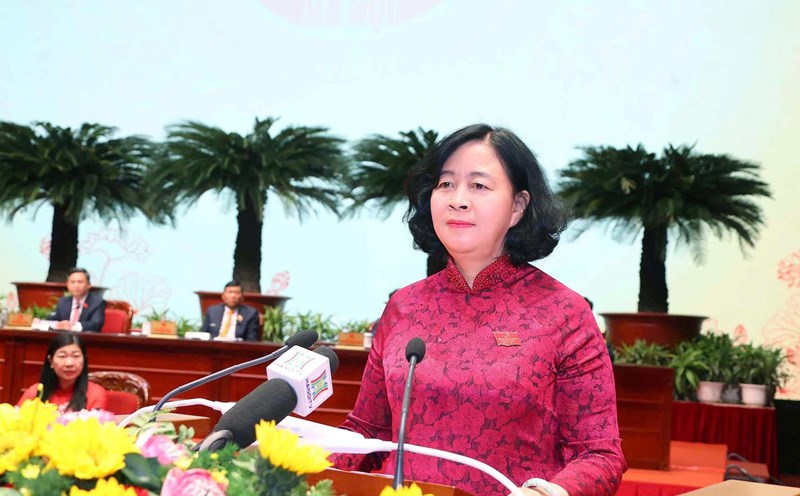figure confirms new potential
Draft Political Report assessing: Economic growth in the period of 2021 - 2025 will average about 6.3%/year, belonging to the group of high-growth countries in the region and the world. The GDP scale in 2025 is estimated to reach over 510 billion USD, 1.47 times higher than in 2020, ranked 32nd in the world, GDP per capita reaching about 5,000 USD, joining the group of countries with high average incomes, highly appreciated by many prestigious international organizations. Growth quality has changed positively, the contribution of factors (TFP) to economic growth reached about 47%.
Although the draft does not directly aim to assess how Vietnam's economy will position in the region and the world, with strong growth momentum, in the 2026-2030 period, Vietnam's economy will have spectacular breakthroughs.
Currently, in ASEAN, Indonesia holds the largest economic position in the bloc with a nominative GDP of about 1.4 trillion USD in 2025. Singapore's economy has a nominative GDP of about 565 billion USD (2025 estimate) - second in ASEAN. With developed industry, tourism and services, Thailand ranks third in ASEAN, with a GDP of about 546 billion USD in 2025. Meanwhile, as forecast, Vietnam's GDP in 2025 will exceed 500 billion USD, ranking fourth.
Thus, the gap in GDP scale of Vietnam does not have much difference compared to the top regions and if the growth target is about 10%/year as set, it is forecasted that Vietnam will surpass Thailand in the next 2-3 years.
Thus, if Vietnam in the next 5 years enters the top 3 ASEAN in terms of economic scale, it will replace Thailand's current position.
Speaking with Lao Dong, Associate Professor, Dr. Nguyen Thuong Lang - National Economics University (NEU) - commented: "The above results are solid foundations showing that Vietnam not only grows rapidly but also has increasingly higher resilience to global shocks - from the COVID-19 pandemic to geopolitical fluctuations globally".
From document to action
Along with the targets and goals set for the new period, the Party documents also point out solutions to ensure economic growth. The draft action program of the Party Central Committee has set the biggest priority as "establishing a new growth model, restructuring the economy, promoting industrialization, modernization with science, technology, and innovation as the main driving force".
According to experts, to realize the goal of entering the top 30 leading economies in the world, Vietnam has identified institutions as the first strategic breakthrough. The socialist-oriented market economic institution continues to be improved in a complete, modern, integrated and efficient direction. The State plays a role in creating development, leading the market, ensuring macroeconomic stability, in parallel with giving greater autonomy to localities, businesses and people.
Administrative reform and digital transformation in public management have been promoted, creating a transparent and open investment environment. Vietnam aims to increase the share of the digital economy to about 30% of GDP by 2030, strongly developing digital infrastructure, data and core technology platforms - from artificial intelligence, cloud computing to blockchain.
In the coming decade, Vietnam is oriented to establish a new growth model based on three main drivers: Science - technology, innovation and digital transformation. This is an inevitable direction in the context of the world rapidly moving towards a knowledge economy and a green economy.
Talking with Lao Dong, Dr. Nguyen Tri Hieu - an economic expert - commented that Vietnam must reform institutions, innovate growth models, improve labor productivity and promote new growth drivers. It is necessary to continue to promote decentralization and delegation of authority associated with accountability and completion of the legal framework for new areas such as digital economy, green economy, and innovation.
Vietnam needs to consider innovation as a central driving force for growth. The government should encourage the formation of regional innovation centers, connecting businesses - universities - research institutes, creating an ecosystem to promote creativity - Dr. Nguyen Tri Hieu recommended.
In addition, Vietnam must maintain macroeconomic stability and enhance autonomy. Independent economic policies, based on endogenous capacity, are implemented in parallel with extensive international integration. The domestic economic sector, especially private enterprises, needs to be strengthened to reduce dependence on the FDI sector.
According to Dr. Nguyen Tri Hieu, the private sector currently plays a key role in the economy. To achieve the top 30 target, Vietnam needs to mobilize all resources, creating conditions for domestic enterprises to grow, reach out to the region and globally. The Government needs to continue to improve policies to support small and medium enterprises, encourage the formation of regional-level private corporations, and develop domestic value chains.
Vietnam focuses on three strategic breakthroughs: Completing institutions, developing high-quality human resources and building synchronous infrastructure. The transportation - energy - urban - digital infrastructure system is being invested heavily, with key projects such as the North - South Expressway, Long Thanh Airport, high-speed railway line, seaports and international logistics centers. These projects not only create a breakthrough in connectivity but also expand the space for regional economic development.
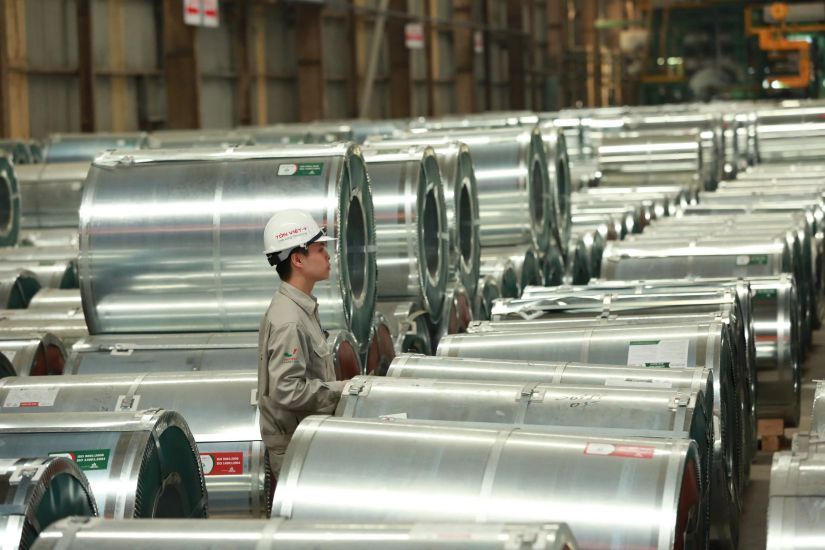
In early 2025, the International Monetary Fund (IMF) estimated that by 2029, Vietnam's economic scale will reach 627 billion USD, surpassing Thailand (616 billion USD) to become the 32nd largest economy in the world and the 4th in Southeast Asia. Vietnam's ranking continues to be maintained in 2030, the economic scale is forecast to reach 666.5 billion USD.




